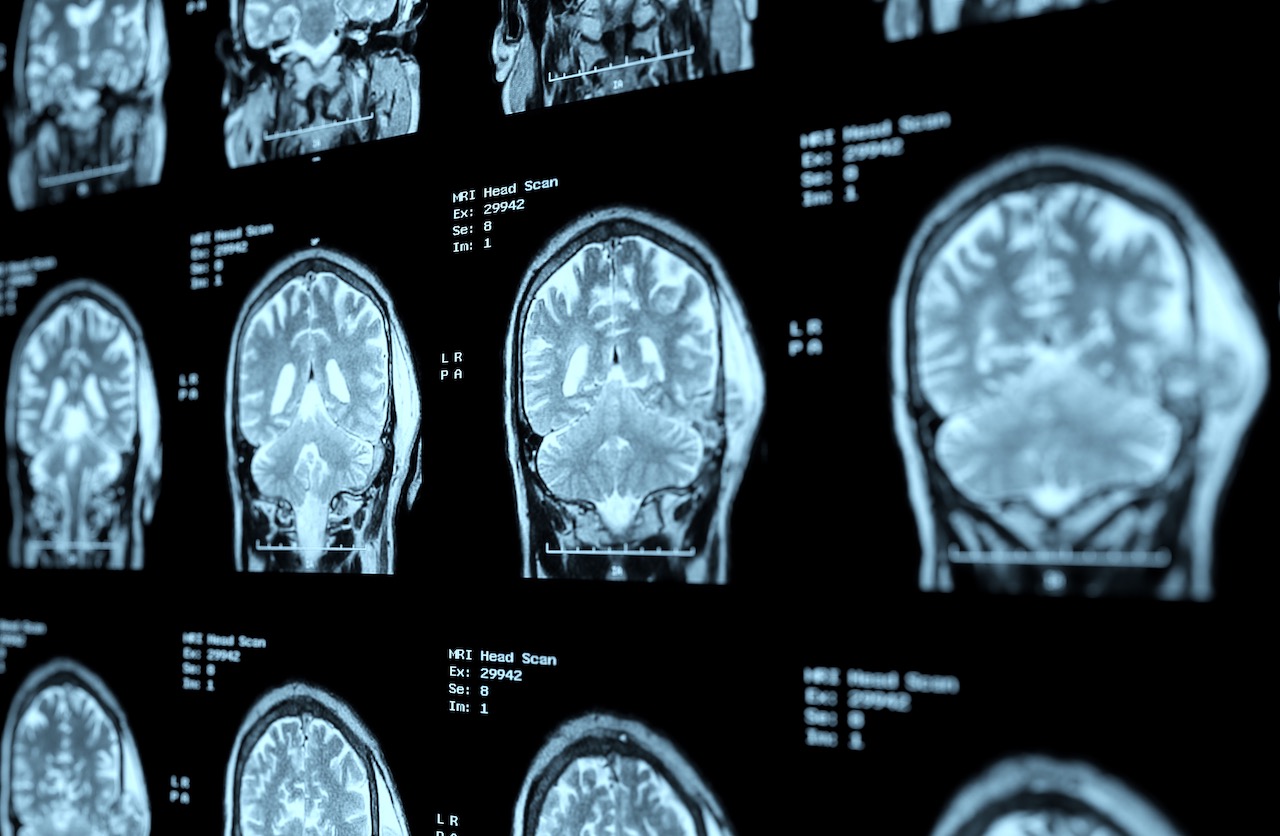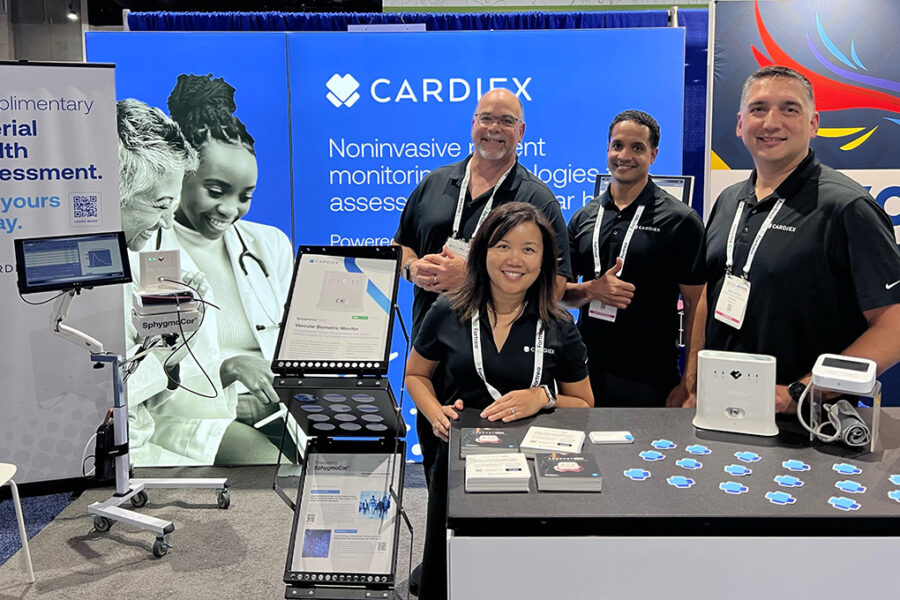
Measuring Brachial Blood Pressure vs Central Blood Pressure and Arterial Stiffness – What Works Best?
August 18, 2019
Can Central Blood Pressure Predict Alzheimer’s and Dementia?
March 18, 2020Arterial Stiffness and Alzheimer’s Disease – What’s the Link?
Alzheimer’s disease is one of the most challenging and disconcerting medical conditions known to humans. It has this distinction not because it is physically painful (although pain can be involved) but because this irreversible, progressive brain disorder slowly robs individuals of their memory and ability to think. It is devastating for both patients and their loved ones and can linger for a decade or longer.
Attempts to find ways to prevent, treat, and eliminate the disease are being conducted worldwide. One aspect of the research is becoming increasingly clear: the relationship between heart disease/vascular disease and dementia and, more precisely, between arterial stiffness and Alzheimer’s disease.
Arterial stiffness and the brain
Arterial stiffness refers to the inflexibility of the arteries. The stiffness of the arterial walls depends on the integrity of the structural elements within the wall; namely, muscle, collagen, and elastin. They receive and respond to the pressure when the blood is flowing through the arteries.
Arterial stiffness also refers to atherosclerosis, often referred to as hardening of the arteries. Although we usually think of atherosclerosis as affecting the heart, it actually involves the entire body, or wherever blood vessels reach. As a demonstration of that relationship, autopsy studies show that people with Alzheimer’s disease have significantly more narrowing of their arteries (atherosclerosis) in their brain than do people without the disease.(1)
That is, the arteries in the brain (cerebral arteries) are blocked with cholesterol and fat, which in turn restricts the amount of oxygen that reaches the brain. When cerebral blood flow declines, it can cause mini strokes and brain atrophy. These events can be instrumental in speeding up the development and progression of Alzheimer’s disease.(2)
The aging brain
As we get older, the amount of blood that circulates through the brain, which is about 32 ounces per minute, declines about one-half percent per year. Therefore, by the time we are 65, circulation may have declined by 15 to 20 percent. Overall this is not a scary scenario, because the body compensates for this reduction. When it does make a difference for brain function, however, is if there is any additional condition that compromises blood flow to the brain.
One such condition is arterial stiffness and/or atherosclerosis. It’s been suggested that since research has indicated the incidence of atherosclerosis in individuals with Alzheimer’s disease is greater than that seen in healthy non-demented people, Alzheimer’s should be reclassified as a vascular condition.
Blood pressure and brain health
A related factor is the effect of blood pressure on brain health. The results of an important life-long study were recently released regarding as association between blood pressure from the mid-thirties to midlife and the impact on late-life brain health. (3)
The study participants were part of an ongoing longitudinal birth cohort made up of individuals born during one week in 1946. Blood pressure measurements were taken from them at ages 36, 43, 63, 60-64 and 69, and blood pressure change variables between ages also were calculated.
Overall, 502 individuals (51% men; mean age, 70.7 years) were assessed between May 28, 2015 and January 10, 2018. The investigators found that:
- Higher systolic and diastolic blood pressure at age 53 and greater increases in both pressures between 43 and 53 years were positively associated with white matter hyperintensity volume (WMHV) at age 69 to 71. Basically, this refers to cognitive loss of severity to result in dementia.
- Higher diastolic blood pressure at age 43 was associated with a smaller whole-brain volume at age 69 to 71
- Greater increases in diastolic blood pressure between ages 36 and 43 also were associated with smaller whole-brain volume at age 69 to 71
- Greater increases in systolic blood pressure between ages 36 and 43 were associated with smaller hippocampal volumes at age 69 to 71. The hippocampus is involved with memory, learning, motivation, and emotion. Therefore, a loss in volume is linked to declines in these critical brain functions
According to one of the study’s authors, Professor Jonathan Schott of UCL Queen Square Institute of Neurology, “The findings suggest that blood pressure even in our 30s could have a knock-on effect on brain health four decades later….[and that]blood pressure monitoring and interventions aimed at maximizing brain health later in life need to be targeted at least by early midlife.” (4)
The good news
Both atherosclerosis and high blood pressure are potentially reversible, especially with lifestyle changes. Since we have the ability to detect signs of arterial stiffness using central blood pressure, we also may get early indications of the development of Alzheimer’s disease.
Central blood pressure is taken of the ascending aorta and is the blood pressure that the brain and other organs, including the heart, arteries, and kidneys are exposed to. Therefore, clinicians are especially interested in this information so they have information to determine the possibility of organ damage and other complications associated with hypertension.
We are fortunate to have an accurate, noninvasive way to diagnose arterial stiffness: ATCOR’s SphygmoCor® XCEL. Physicians can use this technology to get a handle on a patient’s central blood pressure, which provides much more essential and diagnostic information than the traditional brachial cuff approach.
The other good news concerns the ability to help prevent arterial stiffness via lifestyle modifications and medications if necessary. Both animal and human studies have shown that weight loss, aerobic exercise, not smoking, a low-fat diet, intake of omega-3 fatty acids, resveratrol supplementation, vitamin D supplementation, and sodium chloride reduction can help improve arterial stiffness and blood pressure.(5-8)
Bottom line
Further research will hopefully reveal more about the relationship between arterial stiffness and Alzheimer’s disease and the steps we can take to better prevent and treat these medical challenges. For now, individuals should talk to their healthcare providers about identifying their central blood pressure, because it is a more relevant indicator of what is going on with heart and brain health.
Notes
(1)Gutierrez J et al. Brain arterial aging and its relationship to Alzheimer dementia. Neurology 2016 Apr 19; 86(16): 1507-15
(2)Greger M. Flashback Friday: Alzheimer’s & atherosclerosis of the brain. Nutrition Facts 2019 Nov 22
(3)Lane CA et al. Associations between blood pressure across adulthood and late-life brain structure and pathology in the neuroscience substudy of the 1946 British birth cohort (Insight 46): an epidemiological study. The Lancet Neurology 2019 Oct 1; 18(10): 942-52
(4)Eurekalert. Lifelong study links early blood pressure change to poorer brain health. University College London news release 2019 Aug 20
(5)Chen Y et al. Arterial stiffness and stroke: de-stiffening strategy, a therapeutic target for stroke. Stroke and Vascular Neurology 2017 Jun 26; 2(2)
(6)Oh YS. Arterial stiffness and hypertension. Clinical Hypertension 2018 Dec 1; 24(17)
(7)Stanton C. Reduce your risk of arterial stiffness. Life Extension 2018 Mar
(8)Wu C-F et al. Therapeutic modification of arterial stiffness: an update and comprehensive review. World Journal of Cardiology 2015 Nov 26; 7(11): 742-53




